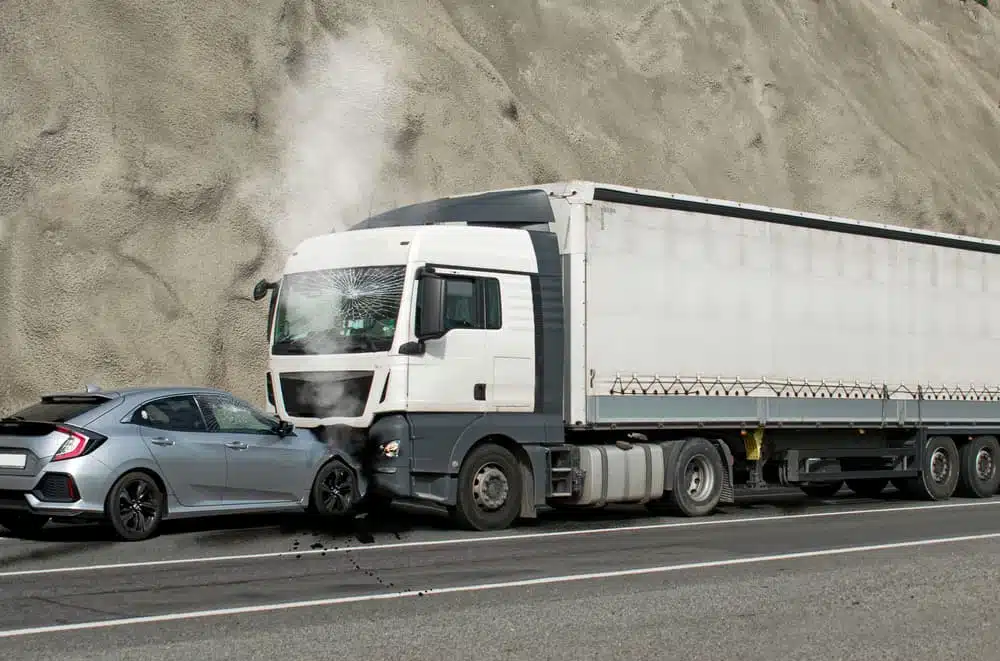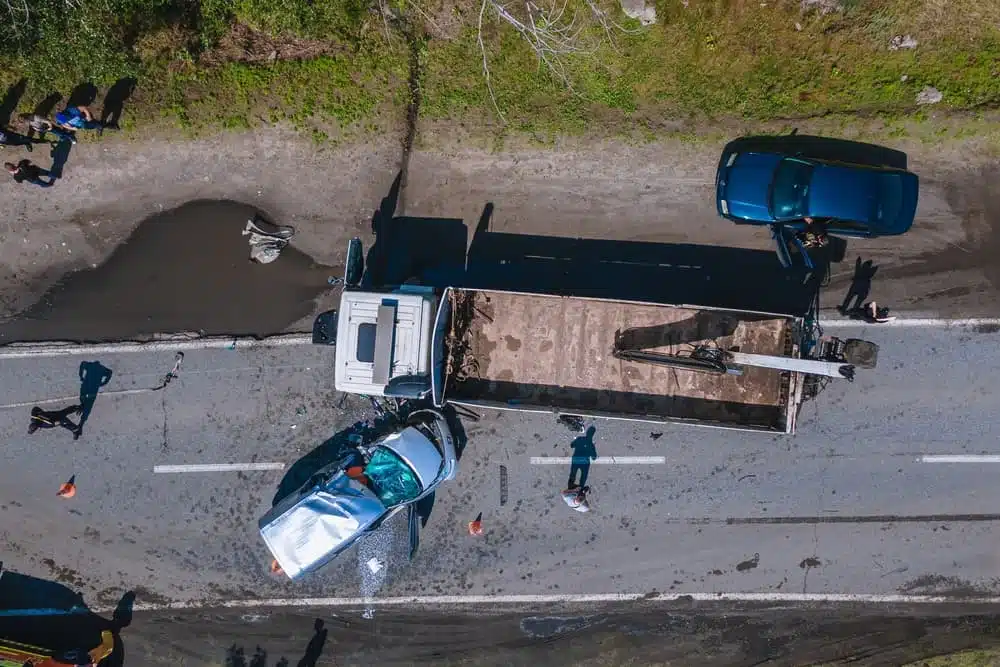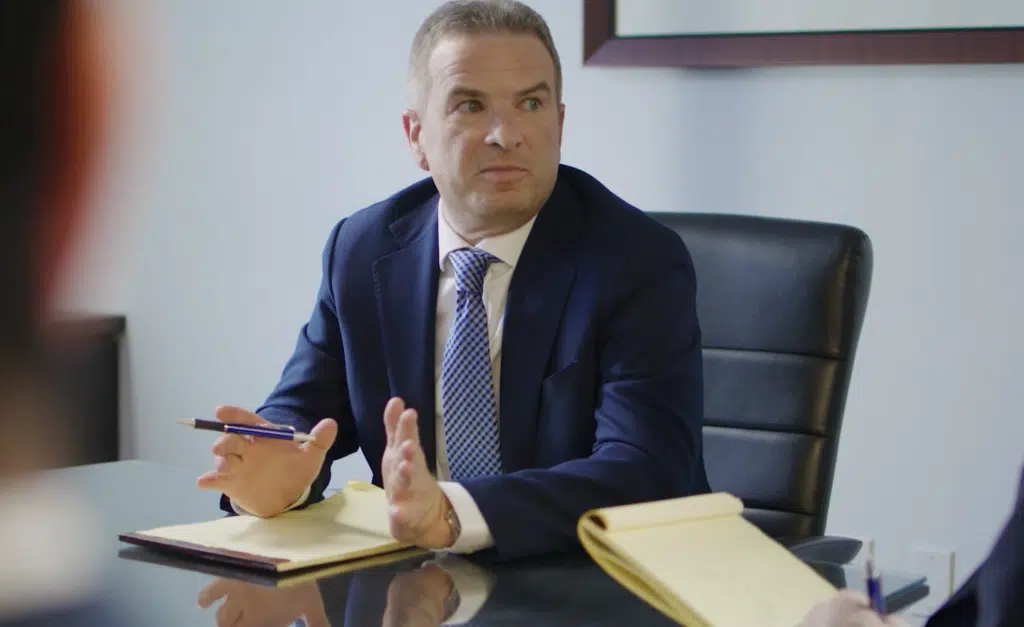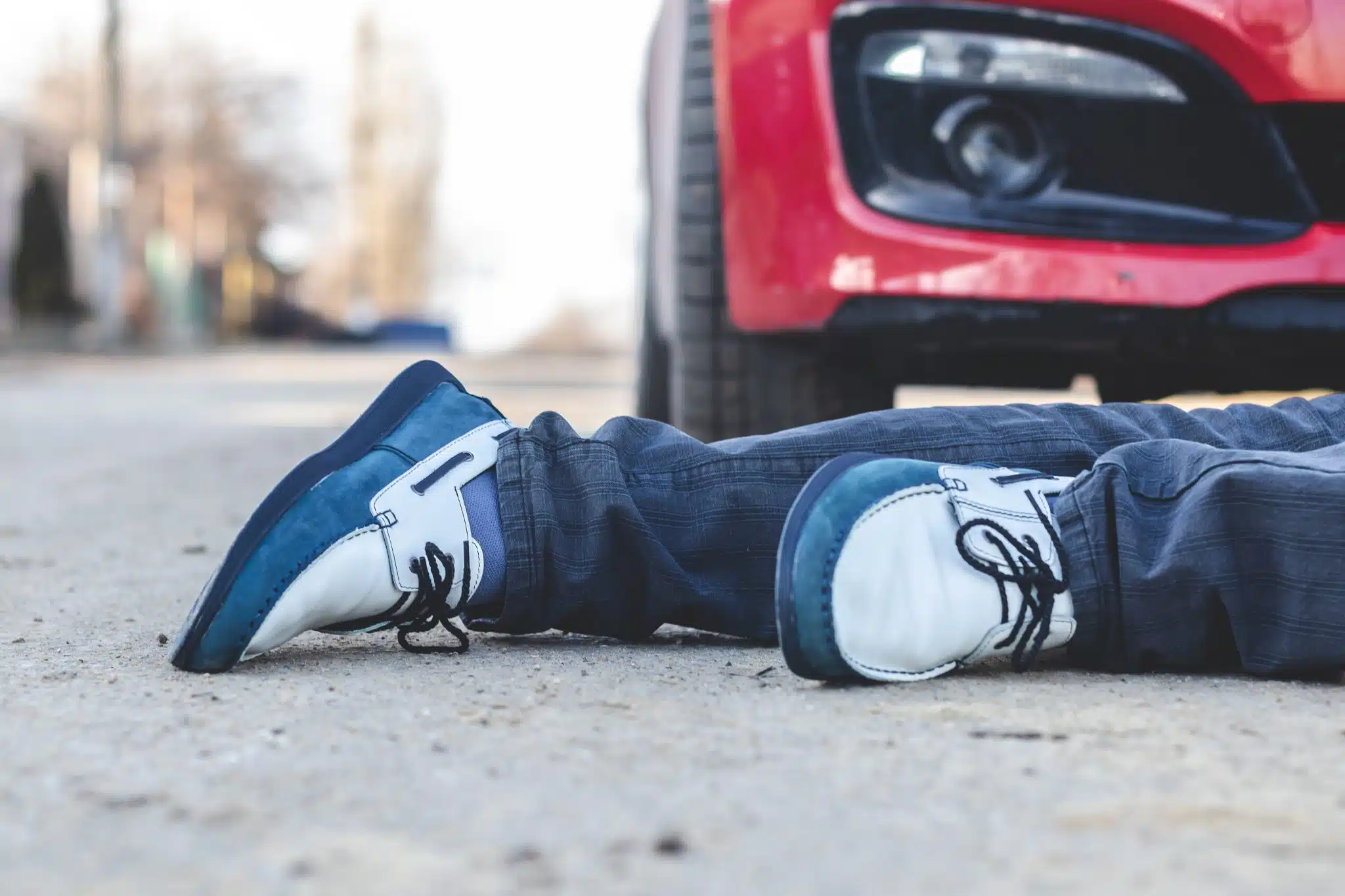
Truck accidents often result in severe injuries, significant property damage, and legal challenges. If you’ve been involved in a truck accident, you must understand your rights and the steps to take to protect your interests.
In this guide, we’ll cover everything you need to know about truck accidents, from immediate actions to long-term legal considerations.
Reach out to a skilled truck accident lawyer near you today.
Immediate Steps After a Truck Accident
The moments following a truck accident are critical. Your actions during this time can significantly impact your safety, health, and potential legal case. Here are the steps to take immediately after a truck accident:
- Ensure safety: Move to a safe area if possible, turn on hazard lights, and set up warning triangles if available.
- Call 911: Report the accident to the police and request medical assistance if needed.
- Seek medical attention: Even if you feel fine, some injuries may not be immediately apparent. Get checked by medical professionals.
- Document the scene: Take photos of the vehicles, damage, road conditions, and any visible injuries.
- Gather information: Collect contact and insurance details from all parties involved, including witnesses.
- Avoid admitting fault: Be careful not to make statements that could be interpreted as admitting fault.
- Contact your insurance company: Report the accident, but be cautious about giving detailed statements until you’ve spoken with an attorney.
- Consult an attorney: Reach out to an experienced truck accident attorney to protect your rights and interests.
Understanding Truck Accident Dynamics
Truck accidents differ significantly from typical car accidents due to the size, weight, and operational characteristics of commercial trucks.
A fully loaded tractor-trailer can weigh up to 80,000 pounds, compared to the average passenger vehicle weighing around 4,000 pounds. This enormous disparity in size and weight creates unique accident dynamics:
- Increased stopping distance: Trucks require much more distance to come to a complete stop, increasing the risk of rear-end collisions.
- Wide turns: Large trucks often need to swing wide to make turns, potentially leading to side-impact collisions.
- Blind spots: Trucks have larger blind spots, sometimes called “no-zones,” which can contribute to accidents.
- Jackknifing: When a truck’s trailer swings out at a sharp angle from the cab, it can cause multi-vehicle accidents.
- Rollovers: Trucks roll over easier than other vehicles due to their high center of gravity, especially in adverse weather or during sudden maneuvers.
Common Causes of Truck Accidents
Truck accidents can occur for many reasons, often involving:
- Driver fatigue: Despite regulations limiting driving hours, many truck drivers operate their vehicles while exhausted.
- Distracted driving: Using mobile devices, eating, or other distractions can lead to accidents.
- Speeding: Trucks traveling at high speeds are more difficult to control and stop.
- Poor maintenance: Neglected vehicle maintenance can result in mechanical failures.
- Improper loading: Improperly secured or unevenly distributed cargo can affect a truck’s stability.
- Weather conditions: Rain, snow, ice, and fog can make truck operation hazardous.
- Drunk or impaired driving: Operating a truck under the influence of alcohol or drugs is extremely dangerous.
- Inadequate training: Some accidents occur due to insufficient driver training or experience.
- Aggressive driving: Tailgating, sudden lane changes, and other aggressive behaviors increase accident risk.
- Road conditions: Poor road maintenance or design can contribute to truck accidents.
Types of Injuries in Truck Accidents
Due to the size and weight of trucks, accidents involving these vehicles often result in severe injuries. Common types of injuries in truck accidents include:
- Traumatic brain injuries (TBI): These can range from mild concussions to severe, life-altering brain damage.
- Spinal cord injuries: These may result in partial or complete paralysis.
- Broken bones: Multiple fractures are common in truck accidents due to the force of impact.
- Internal injuries: Damage to organs like the liver, spleen, or kidneys can be life-threatening.
- Burn injuries: Truck accidents involving fire or hazardous materials can cause severe burns.
- Amputations: The force of a truck accident can sometimes result in the loss of limbs.
- Whiplash: Neck and back injuries are common, even in less severe collisions.
- Psychological trauma: PTSD, anxiety, and depression often follow serious truck accidents.
The severity of these injuries underscores the importance of seeking proper legal representation to ensure you receive adequate compensation.
Legal Considerations in Truck Accident Cases
Truck accident cases are often more complex than typical car accident cases due to several factors:
- Multiple potentially liable parties: Unlike most car accidents, truck accidents can involve numerous potentially responsible parties, including the truck driver, trucking company, cargo loaders, truck manufacturer, and maintenance providers.
- Federal regulations: The trucking industry is heavily regulated by federal laws, which can impact liability determinations.
- Insurance complexities: Trucking companies often have large insurance policies with teams of adjusters and lawyers working to minimize payouts.
- Evidence preservation: Critical evidence such as driver logs and black box data can be lost or destroyed if not promptly secured.
- Severity of damages: The often catastrophic nature of truck accident injuries can lead to high-value claims, increasing the stakes of the legal process.
- Interstate commerce issues: When trucks are involved in interstate commerce, additional legal considerations come into play.
Determining Liability in Truck Accident
Establishing liability in a truck accident case involves thoroughly investigating and analyzing multiple factors. Potentially liable parties may include:
- The truck driver: If the driver was negligent (e.g., speeding, distracted driving, or violating hours-of-service regulations).
- The trucking company: They may be held responsible for their driver’s actions or for negligent hiring, training, or supervision practices.
- The cargo loader: If improperly loaded or secured cargo contributed to the accident.
- The truck manufacturer: If a defect in the truck’s design or manufacturing played a role in the accident.
- Maintenance providers: If poor maintenance led to a mechanical failure that caused the accident.
- Government entities: If poor road design or maintenance contributed to the accident.
Determining liability often requires analysis of evidence such as driver logs, black box data, maintenance records, and accident reconstruction reports.
Compensation in Truck Accident Cases
Victims of truck accidents may be entitled to various types of compensation, including:
- Medical expenses: Coverage for all accident-related medical treatments, including future medical needs.
- Lost wages: Compensation for time missed from work due to injuries.
- Loss of earning capacity: If injuries prevent you from returning to your previous job or working at all.
- Pain and suffering: Compensation for physical pain and emotional distress.
- Property damage: Reimbursement for vehicle damage and other personal property losses.
- Loss of consortium: Compensation for the impact on your relationship with your spouse.
- Punitive damages: In cases of extreme negligence or misconduct, additional damages are awarded to punish the responsible party.
The amount of compensation can vary widely depending on the specific circumstances of the accident and the severity of the injuries.
The Role of Insurance Companies
Insurance companies play a significant role in truck accident cases. However, it’s important to remember that insurance adjusters work for the insurance company, not for you. Their primary goal is to minimize the amount their company pays out.
Some key points to keep in mind:
- Be cautious when speaking with insurance adjusters. Anything you say could potentially be used to reduce your claim.
- Don’t accept an initial settlement offer without consulting an attorney. These offers are often far less than what your claim is truly worth.
- Insurance companies may use various tactics to devalue your claim, such as disputing the severity of your injuries or arguing that you were partially at fault.
- Trucking companies often have large insurance policies with teams of adjusters and lawyers. Having your own legal representation levels the playing field.
- Your own insurance company may also be involved, particularly if you need to make an uninsured or underinsured motorist claim.
Working with an experienced truck accident attorney can help you navigate these insurance issues and ensure you receive fair compensation.
The Importance of Evidence in Truck Accident Cases
Strong evidence helps build a successful truck accident case. Important types of evidence include:
- Police reports: These provide an official account of the accident.
- Witness statements: Eyewitness accounts can provide valuable perspectives on how the accident occurred.
- Photographs and videos: Visual evidence of the accident scene, vehicle damage, and injuries can be powerful.
- Medical records: These documents prove the extent of your injuries and link them to the accident.
- Driver logs: These can reveal if the truck driver violated hours-of-service regulations.
- Black box data: Many trucks come with electronic logging devices that record speed, braking, and other operational data.
- Maintenance records: These can show if the truck was properly maintained.
- Cargo records: Loading information can reveal if overloading or improper loading contributed to the accident.
- Cell phone records: These can indicate if the phone distracted the driver at the time of the accident.
- Expert testimony: Accident reconstruction experts, medical professionals, and financial experts can provide insights.
You must quickly preserve evidence in truck accident cases. Certain evidence, such as black box data or electronic logs, can be overwritten or destroyed if not promptly secured.
Statute of Limitations for Truck Accident Claims
The statute of limitations sets a deadline for filing a lawsuit after a truck accident. These time limits vary by state and type of claim:
- In most states, the statute of limitations for personal injury claims is between one to three years from the accident date.
- For wrongful death claims, the clock usually starts on the date of death, which may be different from the accident date.
- Claims against government entities often have shorter deadlines and specific notice requirements.
- In some cases, the statute of limitations may be paused, such as when the injured party is a minor.
Failing to file within the statute of limitations typically results in losing your right to seek compensation through the courts. You must know these deadlines and take timely legal action to protect your rights.
Why You Need an Experienced Truck Accident Attorney
Given the uniqueness of truck accident cases, working with an experienced attorney is essential. Here’s why:
- Knowledge of trucking regulations: An experienced attorney understands the federal and state laws governing the trucking industry.
- Resources for thorough investigation: Law firms that handle truck accidents have the resources to conduct comprehensive accident investigations.
- Ability to identify all liable parties: Experienced attorneys know how to uncover all potentially responsible parties to maximize your compensation.
- Skilled negotiation: Your attorney can negotiate effectively with insurance companies to ensure you receive fair compensation.
- Trial experience: If a fair settlement can’t be reached, your attorney should be prepared to take your case to trial.
- Understanding of Injuries: Experienced attorneys know the importance of fully understanding and proving the extent of your injuries.
- No upfront legal costs: Many truck accident attorneys work on a contingency fee basis, meaning you don’t pay legal fees unless you win your case.
The Legal Process for Truck Accident Claims
Understanding the legal process can help you know what to expect as your case progresses:
- Initial consultation: Meet with an attorney to discuss your case and decide if you want to proceed with legal action.
- Investigation: Your attorney will gather evidence, interview witnesses, and consult with experts to build your case.
- Filing a claim: Your attorney will file a claim with the appropriate insurance companies.
- Negotiations: Your attorney will negotiate with the insurance companies to try to reach a fair settlement.
- Filing a lawsuit: If a fair settlement can’t be reached, your attorney may file a lawsuit.
- Discovery: Both sides exchange information and evidence related to the case.
- Mediation or arbitration: Many cases are resolved through these alternative dispute resolution methods.
- Trial: If necessary, your case will go to trial, where a judge or jury will determine the outcome.
- Appeal: Either side may appeal the decision if they believe legal errors were made during the trial.
Throughout this process, your attorney will guide you, answer your questions, and advocate for your best interests.
Schedule Your Free Consultation with a Truck Accident Lawyer
Being involved in a truck accident can be a life-altering experience. Understanding your rights and the importance of experienced legal representation can make a significant difference in the outcome of your case.
If you’ve been involved in a truck accident, don’t hesitate to contact us at the Rothenberg Law Firm LLP. A personal injury lawyer from our law firm can guide you through this challenging time and fight for the compensation you need.





